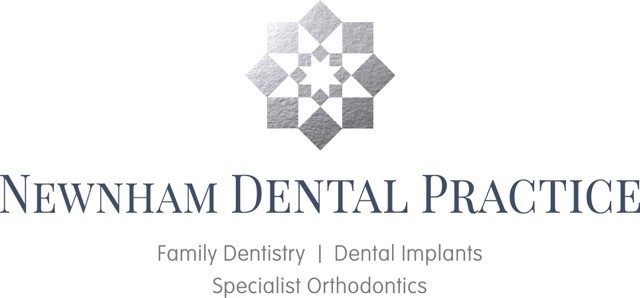Tooth loss is a growing problem throughout the world. The World Dental Federation estimates that globally, over 30% of older people have no natural teeth left. Tooth loss is a cosmetic concern that can affect one’s smile and personality, but it also creates functional problems like difficulty in eating and speaking.
When it comes to replacing missing teeth, there are several options you can choose from. If you are looking for an aesthetically pleasant, strong and durable tooth replacement option, dental implants should be your first choice.
An implant is a titanium screw shaped fixture which is directly inserted into the jaw bone. The implants are designed to serve as replacement tooth roots for the missing teeth. Over the years, tooth implants have become the most preferred tooth replacement option among the patients and dentists alike – owing to their excellent aesthetics and lifelong durability.
If you are thinking about getting your missing teeth replaced with teeth implants and knowing more about them, this article is for you. Here, we explain everything you need to know about tooth implants.
How Long Do Teeth Implants Last?
Dental implants are made from high-quality titanium alloys. As a result, they are not only safe for use inside the oral cavity, but they are also quite strong and durable. This is because the titanium alloys do not undergo corrosion or degradation like other metals. As a result, they do not release any harmful materials into the mouth and retain their strength for many decades. A research study published in 2017 showed that dental implants have a 10-year success rate of more than 90%. However, if looked after properly, dental implants can last for a lifetime.
Factors such as poor oral hygiene maintenance, history of underlying medical conditions like diabetes, hypertension or bone pathologies, smoking, and alcohol intake have been shown to significantly affect the clinical life of tooth implants.
Do Teeth Implants Hurt?
Placement of dental implants is a surgical procedure. However, your dentist is trained to perform this procedure painlessly. Before starting the procedure, your dentist will numb the area to ensure that you remain pain-free, comfortable, and relaxed. So, no need to worry. Dental implant placement is a safe and painless procedure.
Sometimes, for extremely apprehensive or frighten patients, dentists may choose to perform the implant procedure under the effect of conscious sedation. According to the British Dental Association, conscious sedation is a procedure in which dentists calm down uncooperative patients by administering various sedative drugs. During sedation, the individual becomes drowsy but is still conscious enough to respond to the dentist’s instructions.
How Many Teeth Can Go On One Implant?
Ideally, a single implant should support one artificial tooth. However, this does not mean that you need an implant for each missing tooth. Your dentist will place a crown over the implant to complete the artificial tooth structure for replacing a single tooth. If the replacement of multiple teeth is needed, then, depending on the location and the number of the missing teeth, your dentist may design a “hybrid” appliance using one or more implants which can support up to three or four artificial teeth by using removable dentures or bridges – as recommended by the American Academy of Periodontology.
Similarly, if someone is missing all their natural teeth, then your dentist will place 4 or 6 implants in each jaw at strategic locations – where the bone mass and density is the highest – and use them to support a complete fixed bridge. Such an appliance is known as all-on-four, or six implants supported denture, respectively.
In short, the number of implants needed for replacing the roots of missing teeth depends on various factors such as the location and number of the missing teeth and the quality and health of the supporting jaw bone.
Are Implants As Strong As Real Teeth?
No man-made things can be as durable or strong as the ones gifted to us by nature. However, dental implants can be regarded as the next best thing, after your natural teeth. Titanium implants are incredibly durable – they do not degrade within the oral environment. They can resist extreme pressures and forces generated inside the oral cavity. Therefore, with proper oral health care, dental implant-supported teeth can be as strong and durable – if not more – than the natural teeth.
Can You Have Implants With Osteoporosis?
Osteoporosis is a condition in which the bones become weak and brittle. The Royal College of Obstetricians and Gynaecologists estimates that around 3 million people in the UK suffer from this disease.
The success of tooth replacement with dental implants depends on their ability to form an intimate contact with the surrounding jaw bone. This allows them to serve as strong foundations for any artificial teeth which are attached to them. Naturally, if the underlying bone is weak, it will not effectively support the implant and lead to its failure. However, having osteoporosis does not mean that you cannot get implants.
A research study by Jardim et al. has shown that osteoporosis, especially mild, is not a contraindication for getting teeth replaced with dental implants. This is because osteoporosis and other bone pathologies can be controlled with medications. Also, your dentist can reinforce the weakened jawbone with a bone graft procedure. However, your dentist is the best person to advise whether you are a candidate for getting implants if you have osteoporosis.
How Teeth Implants Fitted?
Dental implant placement is a surgical procedure. Before initiating this procedure, your dentist will first perform a thorough clinical examination and evaluate your tooth models and x-ray images – to prepare a detailed treatment plan.
On the day of the surgery, your dentist will administer local anaesthesia so that you remain pain-free throughout the procedure. The procedure is initiated by making an incision and raise a flap over the soft tissues that overly the bone where the implant is to be inserted. Next, your dentist will drill a hole into the jaw bone at a pre-defined location, and then carefully screw in the implant into position. Once the implant has been inserted, your dentist will place a healing collar around it, replace the flap and suture. The implant site will be left undisturbed for about 4-6 months, to ensure optimal bone formation around it. While the implant site is healing, your dentist will place a temporary restoration over the implant so that you do not have to remain with a missing tooth.
Once sufficient healing occurs, your dentist will attach a suitable prosthesis over the implant – a crown, denture, or a bridge – depending on the number of teeth to be replaced. In some cases, dentists load the implants with a prosthesis immediately after their insertion. This is known as immediate implant loading.
When it comes to replacing missing teeth, there is no option better than tooth implants. Not only you can get a charming, beautiful smile with the implant-supported artificial teeth, but you also don’t have to worry about your partial dentures or false teeth slipping out accidentally while you are speaking. More importantly, implants remain fixed inside the bone and allow you to eat your favourite foods without any difficulty. Finally, implants look, function and feel just like your natural teeth – and you will have no problems getting used to them.
Looking for an implant dentist in Cambridge and Ely? Look no more! Newham Dental Practice is the solution to all your dental problems. Whether you need wisdom tooth removal or looking for professional teeth cleaning to ensure healthy teeth and gums, we provide all services under one roof.
So, are you ready to transform your smile and lifestyle with implants? Visit our website here to book an appointment, and take your first step towards an attractive, healthy and lasting smile with implant-supported artificial teeth.

